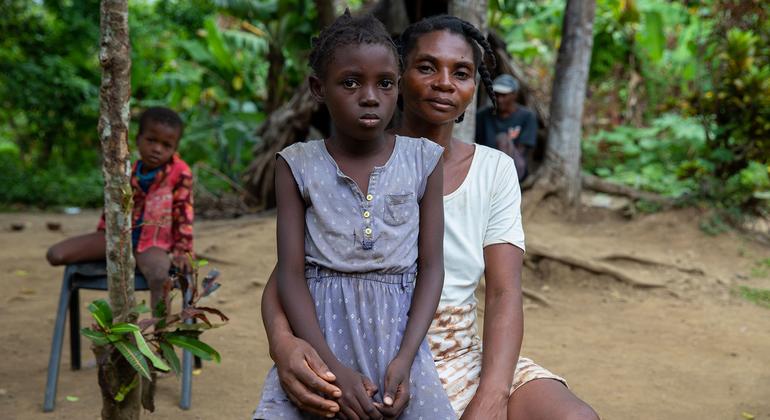The report, Impact of COVID-19 on the welfare of households with children, presents findings from data collected in 35 countries, and notes that households with three or more children were most likely to have come up short, with more than three-quarters experiencing a reduction in earnings.
Going without food
“Families cannot afford food or essential healthcare services. They cannot afford housing. It is a dire picture, and the poorest households are being pushed even deeper in poverty,” said Sanjay Wijesekera, UNICEF Director of Programme Group.
According to the joint press release, the lost earnings have left adults in a quarter of all households, in the position where children are going a day or more, without food.
Moreover, adults in nearly half of households with children, reported that they themselves were skipping a meal due to a lack of money.
Around a quarter of adults in households with or without children, reported finding themselves out of work, during the course of the pandemic so far, the report says.
“The modest progress made in reducing child poverty in recent years risks being reversed in all parts of the world. Families have experienced loss at a staggering scale. While last year, inflation reached its highest level in years, more than two thirds of households with children brought in less money”, Mr. Wijesekera added.
Preventing a lost decade
According to recent data, the economic crisis generated by COVID-19 threatens to hit children and families the hardest.
The number of children living in multidimensional poverty – without access to education, health, housing, nutrition, sanitation or water – soared to approximately 1.2 billion in 2020, while an estimated additional 100 million children were projected to have fallen into multidimensional poverty in 2021.
Basic deprivation
As explained in the report, with children in 40 per cent of households not engaging in any form of educational activities while their schools were closed, children were being deprived of the basics.
“The disruptions to education and healthcare for children, coupled with catastrophic out-of-pocket health expenses which affect more than one billion people, could put the brakes on the development of human capital – the levels of education, health and well-being people need to become productive members of society,” said Carolina Sánchez-Páramo, Global Director of Poverty and Equity for the World Bank.
Generations of inequality
The report also notes that prior to COVID-19, one in six children worldwide – or 356 million – experienced extreme poverty, where household members struggled to survive on less than $1.90 a day.
More than 40 per cent of children lived in moderate poverty. And nearly one billion children lived in multidimensional poverty in developing countries, a figure that has since increased by 10 per cent as a result of the pandemic.
Speaking on the lack of development of human capital, Ms. Sánchez-Páramo added that the current situation “could lock in increases in inequality for generations to come, making it less likely that children will do better than their parents or grandparents.”
More social protection
Although households with three or more children were the most likely to experience a loss of income, they were also most likely to receive government assistance, with 25 per cent accessing this support, compared to 10 per cent of households with no children, the report advanced.
Furthermore, this helped to mitigate the adverse impact of the crisis on households who received support.
In their joint call, UNICEF and the World Bank, are urging a rapid expansion of social protection systems for children and their families.
Support should include the delivery of cash transfers and the universalization of child benefits, seen as critical investments that can help lift families out of economic distress and help them prepare for future shocks.
According to the World Bank, since the start of the pandemic, more than 200 countries or territories have introduced thousands of social protection measures, and the Organization has supported countries with approximately $12.5 billion to implement such measures, reaching nearly one billion individuals worldwide.





